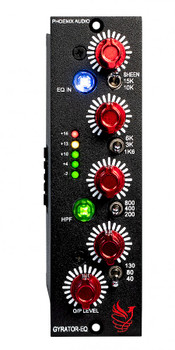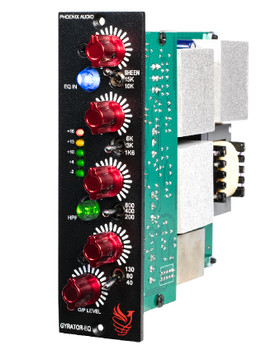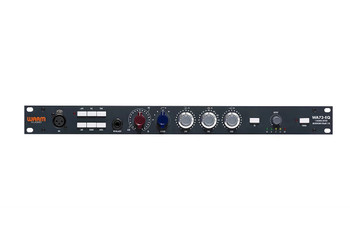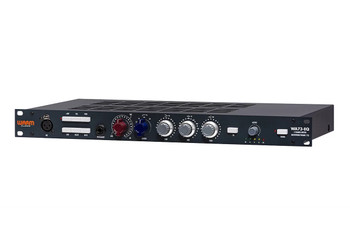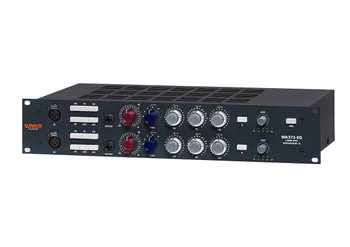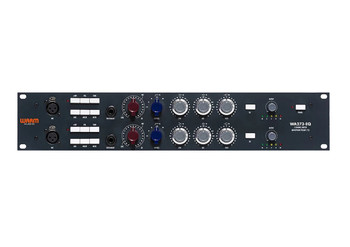Description
Pivot Tone Channel / 500
At a Glance
- Class A Discrete input line buffer amp
- Class A Discrete 10meg ohm DI input
- Class A Discrete output amp
- Phoenix custom output transformer
- Unique 3 position pivot point sloping EQ
- Controllable LF, MF & HF pivot positions
- Dark & bright tone control
The Pivot Tone Channel 500 (formely known as the Tilt Tone channel) is a 500 series channel strip featuring a balanced line level signal processor incorporating our class A discrete buffer amp from our world renowned Nicerizer summing mixer, a DI with our 10meg ohm inputs found in our Nice DI and a 'see-saw' EQ circuit.
Pivot TC/500 uses a powerful tone control pivot position EQ , a unique 3 position 'see-saw' EQ with 3 carefully selected pivot positions to cover low frequencies at 160hz, mid frequencies at 800hz and high frequencies at 1.6khz. A dark/bright shaping control, allows you to 'see-saw' the EQ to darken your mix (add LF) or brighten the mix (add HF).
There is a also a 10 position LED metering that accurately represents the output level.
The unit can also be used in bypass mode, the ouput control can be driven bringing in the Class A discrete output circuitry and output transformer to add analogue colour and saturation to any source, and a pair of units would be excellent on a mix bus or mastering.
Specifications
- Class A Stereo DI Output specs.
Frequency Response: 20Hz to 20Khz +/- 0.5dB
Maximum Output: +26dBu @ 1Khz
Noise: 90dB @ 22Hz to 22KHz
- Class A, discrete, truly balanced transformerless input stage.
- The Class A DI has a very high input impedance (10Mohm), without the use of FET's. This means that the guitar pickups are not loaded as with a lower impedance input, and so allows every transient to be reproduced, making even a cheap guitar sound exceptional.
Inputs: 1/4" jack (TS) input & through input on the front panel
- Transformer isolated balanced output (XLR) on the rear panel
EQ with 3 fixed pivot positions: 160hz, 800hz & 1.6khz
- Dark/bright tone control
- 10 position LED output metering.
- Output level control.



